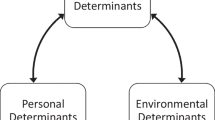Abstract
One of the main teaching challenges facing professors is the need to develop experiential pedagogy that gives students a realistic, hands-on appreciation of the subject being studied. The advent of widespread and accessible information technology now makes it possible to create such experiential pedagogy that combines all the learning of traditional simulations with the new possibilities and realism that Web-based information technology provides. This paper discusses the successful use of such an experiential simulation that is primarily delivered using the Web. The role-play is useful in helping students understand how governments, stakeholders and business organizations interact and how new policy subsequently gets developed and the impact this has on the management of business organizations. As such the simulation can be used in a variety of business courses such as business-government relations, business ethics, business and society, environmental business management etc.
Similar content being viewed by others
References
M. Baetz, Readings and Cases in Business, Government andSociety (Nelson, Scarborough, 1993); W. Stanbury, Business Government Relations in Canada, 2nd edn. (Nelson, Toronto, 1993); A. Goldsmith, Business, Government, Society (Irwin, Chicago, 1996).
A. Beckenstein et al.,Stakeholder Negotiations (Irwin, 1996); H. Vernon-Wortzel, Business and Society: A Managerial Approach, 5th edn. (Irwin, 1994).
M. Hequet, Gamesthat teach, Training 32(7) (1995) 53–58.
M. Maital-Shlomoand K. Morgan, Playing at management, Across the Board 25(4) (1988) 54–62.
M. Foxon, Using simulations to enhance technicaltraining, Journal of European Industrial Training 14(4) (1990) 17–20.
L. Broadwell, Business games: They're more than child's play,Successful Meetings 36(7) (1987) 36–39.
B. Keys,Improving management development through simulation gaming, Journal of Management Development 5(2) (1986) 41–50.
L. Luthans etal., Organizational Behaviour (Irwin Press, Toronto, 1988).
E. Van-Velsor and M. Ruderman, The lessons of looking glass: Management simulations and the real world of action, Leadership and Organization Development Journal 10(6)(1989) 27–31.
H. Denton, Simulating design inthe world of industry and commerce: Observations from a series of case studies in the United Kingdom, Journal of Technology and Education 6(1) (1994).
L. Moutinho, Learning/teaching effectiveness of marketing simulationgames, Quarterly Review of Marketing 13(2) (1988) 10–14.
J. Spruell, A course planning method to incorporate collaborative learning ininformation systems courses, Journal of Information Systems Education 4(2) (1992).
Author information
Authors and Affiliations
Rights and permissions
About this article
Cite this article
Galea, C. Experiential Simulations: Using Web-Enhanced Role-Plays to Teach Applied Business Management. Information Technology and Management 2, 473–489 (2001). https://doi.org/10.1023/A:1011458819615
Issue Date:
DOI: https://doi.org/10.1023/A:1011458819615




